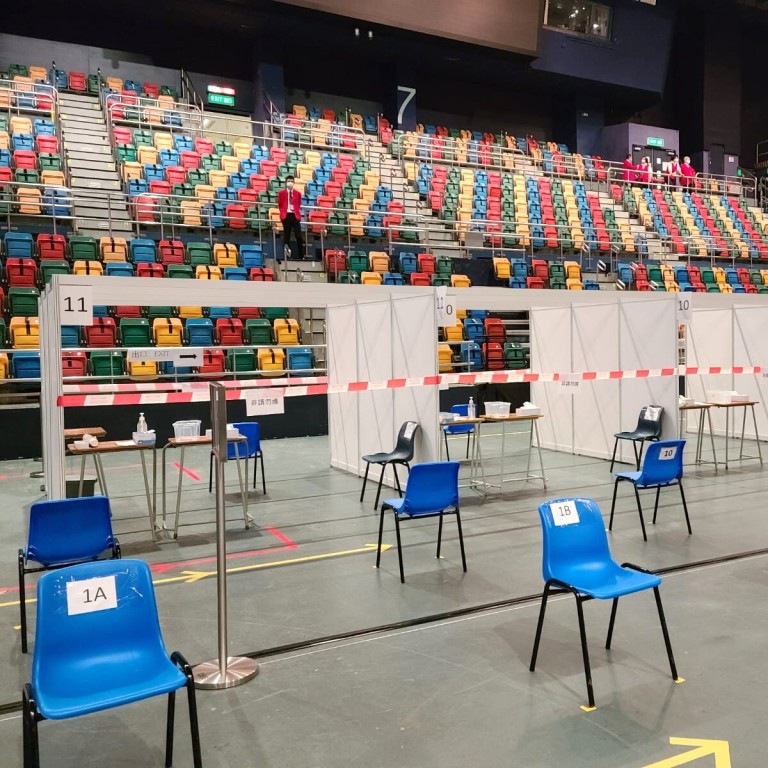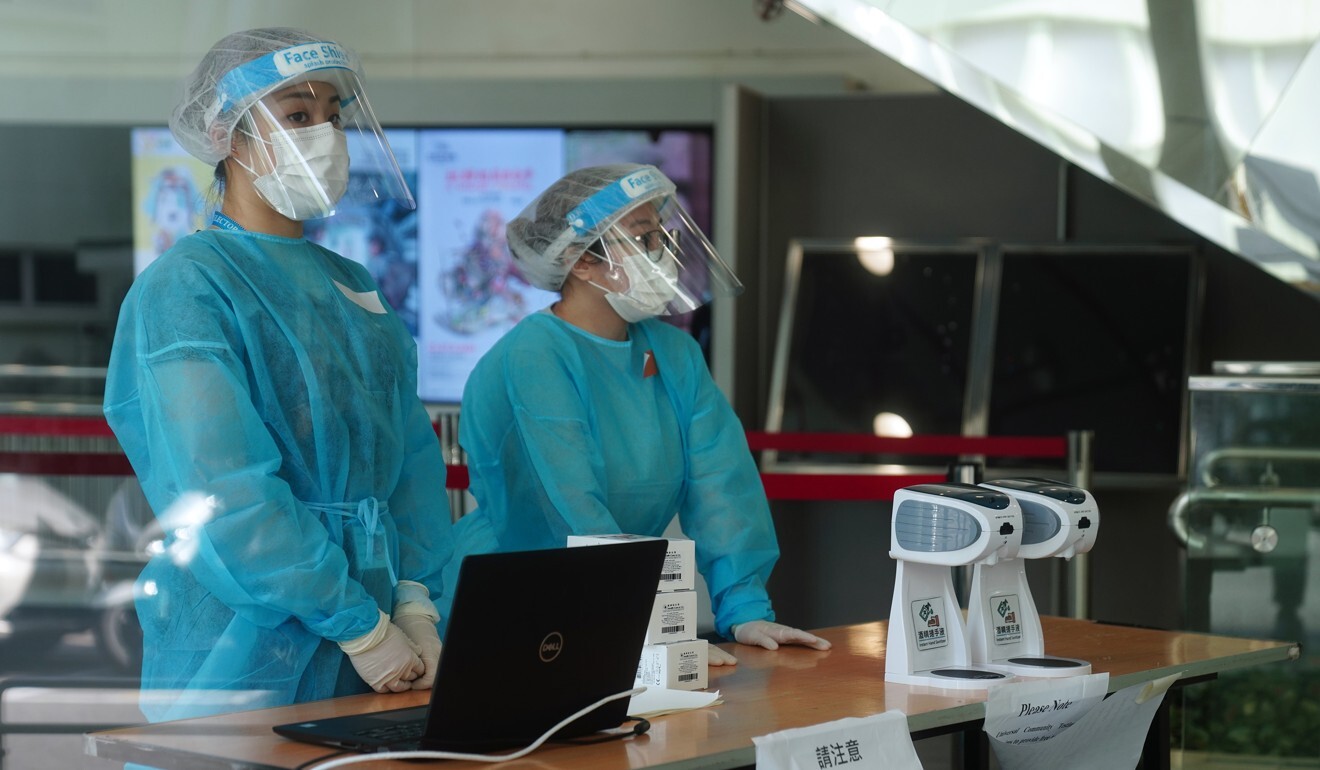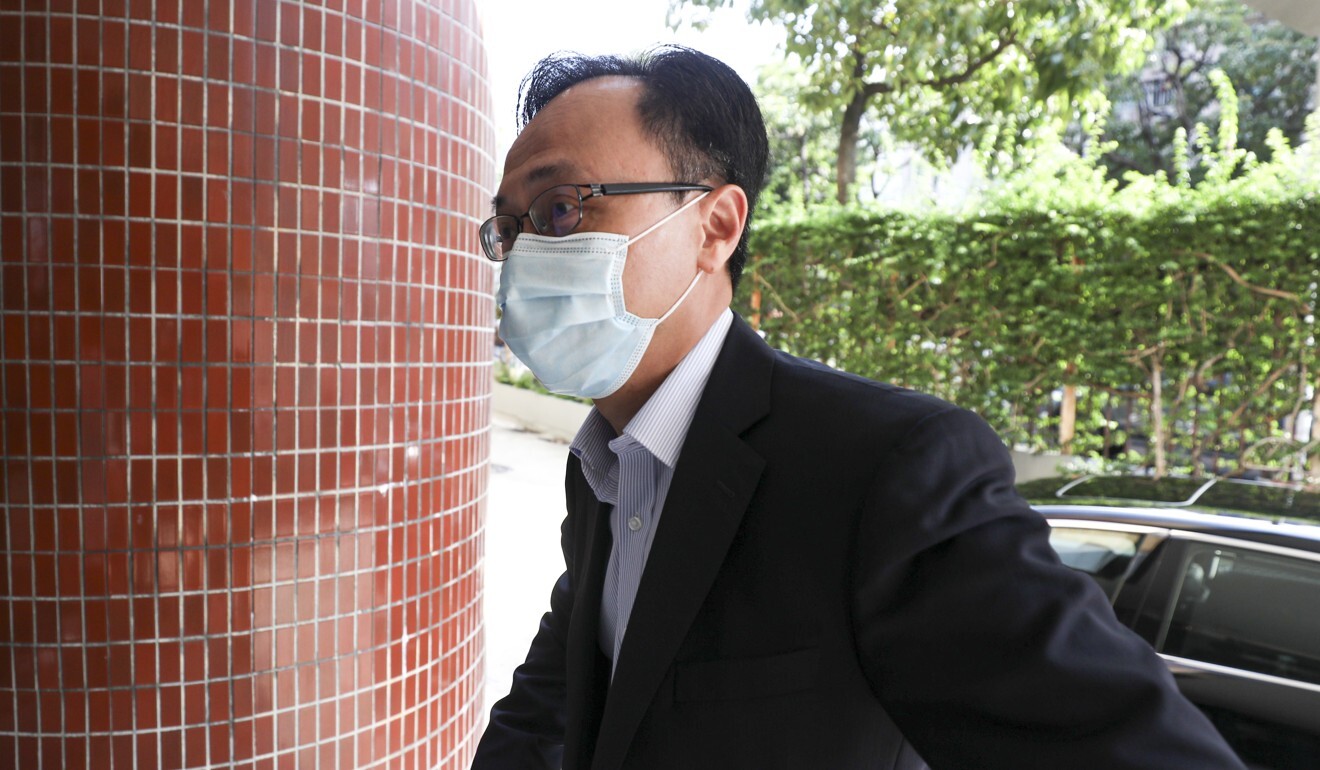
Coronavirus: experts see ‘positive sign’ as 220,000 Hong Kong residents sign up for mass-testing scheme in first 11 hours of online registration
- The sign-ups come as the city records 18 new confirmed Covid-19 cases, five of which have not been traced to their source, along with three fatalities
- Local officials and experts say the heavily pushed testing programme will be key to tracking down hidden carriers of the virus
The turnout followed multiple appeals from local officials and experts, including Secretary for the Civil Service Patrick Nip Tak-kuen, who said the programme, which begins on Tuesday, could help the government gain control of the Covid-19 crisis without a need for further drastic social-distancing measures.
Hong Kong recorded 18 cases on Saturday, the 11th straight day of fewer than 30 infections, bringing the official total to 4,786 confirmed cases, with 87 related deaths.
Dr Chuang Shuk-kwan, head of the Centre for Health Protection’s communicable disease branch, said 16 of those cases involved local transmission, with 11 traced to existing patients. Five had unknown sources of infection.
Explainer: What you need to know about Hong Kong’s universal Covid-19 tests
“[Because] 30 to 40 per cent of cases are coming from unknown sources, we feel the community still has hidden virus carriers. Now we have the mass-testing scheme ... If residents can seize this chance to find out about their own situation, it will help us understand … the spread of hidden virus carriers in the city,” she said.
The five cases not yet traced included an Indonesian domestic worker who lived in Kwai Chung with an elderly woman and rarely hung out with friends.
Chuang noted that a female neighbour who lived on the same floor had been confirmed infected earlier, but said the pair did not know her and had since moved to Tsuen Wan to live with the woman’s daughter and granddaughter.
A nurse at the private clinic of Dr Tse Kin-wah in Yuen Long was also confirmed with an unknown source of infection, while another part-time nurse at the same clinic tested preliminary positive.
The other three cases involved male retirees living at the Lower Ngau Tau Kok and Kwai Shing East estates as well as a worker from the Electrical and Mechanical Services Department.
The two imported cases were returnees from Pakistan and the Philippines.
Other new cases included a staff member and a resident of the Hong Chi Lei Muk Shue Hostel, a home for the mentally disabled where 16 infections have now been confirmed.

About 10 preliminary positive cases were recorded elsewhere in the city, Chuang added.
Hong Kong also reported three fatalities connected to the disease on Saturday.
The Prince of Wales Hospital in Sha Tin announced that a 63-year-old man who lived in Heng On Estate in Sha Tin had passed away at 8.15pm on Friday night, while a 98-year-old woman who lived in a home for the elderly in Kowloon Bay’s Kai Yip Estate succumbed on Saturday afternoon. Both suffered from chronic illnesses.
The other death was a 70-year-old patient at Pamela Youde Nethersole Eastern Hospital in Chai Wan.
Starting on Tuesday, more than 140 coronavirus testing sites at community halls, schools and stadiums will collect samples across the city’s 18 districts from 8am to 8pm, with disinfection at the facilities carried out twice a day.
The government spent about HK$2.58 million to post advertisements in 11 newspapers on Saturday to drum up support as online registration opened for the universal testing programme – about 220,000 people signed up between 7am and 5.45pm.
Asked if criticism of the free, Beijing-backed programme reflected public distrust in the government, Nip said: “Whenever there is an issue involving the central government or mainland China, some people may stir up conflict or demonise and exaggerate the problem.

“If people question government policies based on [logic], there is no problem at all, but if they just make attacks regardless of the facts, I believe citizens have their own judgment.”
Chinese University respiratory medicine expert Professor David Hui Shu-cheong said having about 220,000 registered signalled “a good start”, adding the mass testing could help eliminate hidden chains of transmission, as the transmissibility of the virus during the third wave was much higher than before.
Dr Joseph Tsang Kay-yan, an infectious disease specialist in the private sector, also called the registration figure a “positive sign”, estimating as many as 2 million to 2.5 million people would participate in the scheme by the end.
Tsang noted there were other reasons deterring residents from joining, including privacy issues and questions about the necessity of the tests given that social-distancing measures were again being eased.
“No matter if the participation figure is big or small, it’s somewhat effective. We can identify and isolate asymptomatic carriers,” he said. “But to allow us to analyse the pandemic and determine other policies, if the age groups of participants are evenly distributed … then there will be meaningful info drawn.”
Still, the registration figures appeared somewhat dwarfed by the response to the reusable CuMask+ giveaway, which opened online registration in May and attracted more than 1.5 million applications in the first 11 hours.
Meanwhile, the Centre for Health Protection noted that three employees working for different property agencies in Victoria Mall had been confirmed infected and that specimen bottles would be given to those working at the mall for virus tests.


